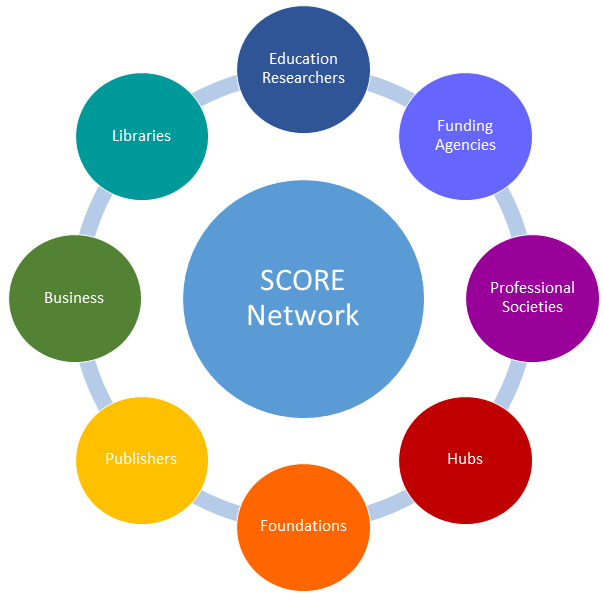Sustainability Challenges for Open Resources to promote an Equitable Undergraduate Biology Education (SCORE-UBE)
Peer Mentoring Networks
SCORE Peer Mentoring Networks
SCORE Peer Mentoring Networks (PMNs) are virtual learning communities designed to help OER leaders reconstruct and redesign their organizations to integrate educational and research practices that promote equitable and inclusive praxis within the Open Ecosystem. PMNs are based on the highly successful QUBES Faculty Mentoring Network model, with a few modifications. PMNs are mentored by members of the Network with expertise in the subject or topic and are shaped by the interests of the participant. They typically meet virtually for group discussion once a week for 6 weeks with readings to be completed before each meeting. We believe that the community holds the answers to the challenges we face, and the experiences and expertise that each participant brings contributes to the community is welcome.
If you have a topic you'd like to discuss and learn about in a PMN or would be interested in mentoring a PMN, let us know by emailing Maggie Diamond-Stanic at mdiamond@bates.edu.
Previous and current PMNs
Social Justice, Equity, Diversity, and Inclusion (S-JEDI) - level 1
The intended outcome of this S-JEDI learning curriculum is to improve STEM postsecondary education through a centering of social justice, equity, diversity and inclusion “S-JEDI” pedagogically, curricularly and structurally. This peer learning community will focus on examining social justice, equity, and race/racism in open education resource organizations. This group will be specifically geared to organizational leaders in open education interested in a peer learning community around race, racism, and STEM education.
Educating our Next Generation of Scientists: Open Educational Practices, Open Science and Social Justice (Open Practices)
The purpose of this learning community is to explore basic tools for open educational practices (OEP). Topics to be covered include: The open ecosystem: exploring key elements of OER, OEP, open pedagogy and open science; Open licenses; Strategies for using open pedagogy in STEM courses with an emphasis on social justice framework; Trust and Power in the STEM classroom: A focus on student agency; The transformative potential of Open Science; and Practices for bringing inclusive Open Science into the STEM classroom and research lab.
